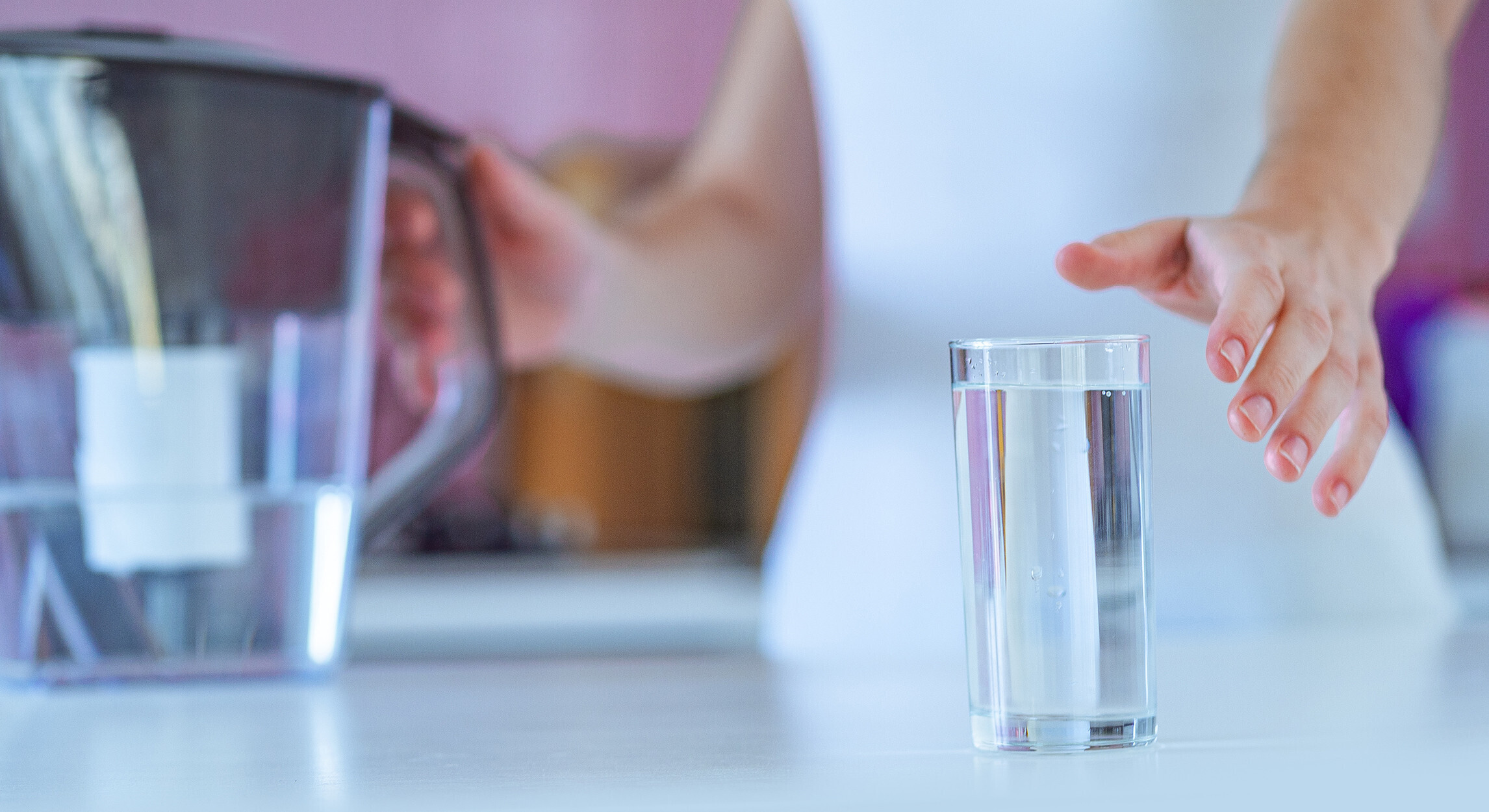Nowadays, in most countries in the world, although unfortunately not everywhere, access to drinking water is simplified thanks to taps. However, the quality of this water can vary considerably, and many people choose to drink bottled water in the belief that it is safer. However, there are many benefits to filtering water at home, both for the body and the environment. This article takes an in-depth look at the benefits of water filtration and explores the reasons why it's better to give up buying plastic bottles.
What is the quality of tap water?
Drinking water from municipal networks sometimes contains contaminants, although generally at levels considered safe by regulatory bodies. Potential contaminants include chlorine and chlorine derivatives, which are used to disinfect water. They can alter its taste and potentially form harmful by-products. Heavy metals such as lead, mercury and arsenic can also be found in water due to old pipes or industrial pollution. In addition, chemicals such as pesticide residues can contaminate water supplies. Finally, in very rare cases, micro-organisms such as bacteria, viruses or parasites can sometimes escape purification treatments. Although rare and at thresholds considered harmless to humans, it is preferable to opt for home filtration systems that can eliminate or considerably reduce these contaminants, thereby providing purer water that is safer to drink.
A recent reassuring study on bottled water:
As far as bottled water is concerned, although it is pure after treatment by the companies that produce it, another problem arises after packaging: plastic contamination of the water due to contact with the bottle that serves as the container. According to a recent study, bottled water contains far more plastic particles than previously thought. Using an innovative technique, the new study found that bottled water contains between 110,000 and 370,000 particles per litre, mainly nanoplastics. Yan Beizhan, co-author of the study, comments: ‘If people are worried about nanoplastics in bottled water, it's reasonable to consider alternatives, such as tap water’.
The environmental impact of plastic bottles:
The environmental impact of plastic bottles is considerable. Every year, billions of plastic bottles are produced, used and thrown away, contributing to massive pollution. A large proportion of plastic bottles are not recycled and end up in landfill or the oceans. According to some estimates, around 8 million tonnes of plastic end up in the oceans every year, posing serious threats to marine life and ecosystems. To make matters worse, plastics take hundreds of years to decompose. During this time, they fragment into microplastics that contaminate the environment and the food chain. As if that wasn't enough, the production, transport and disposal of plastic bottles generate greenhouse gas emissions, contributing to climate change. The production of plastic bottles consumes an enormous amount of natural resources, as they are made from oil, a non-renewable resource. And, paradoxically, it takes several litres of water to produce a single one-litre plastic bottle. Reducing your consumption of plastic bottles by opting for filtered water at home is a significant step towards conserving resources and reducing your carbon footprint.
What are the benefits of choosing tap water & filtering it?
Although the initial purchase and maintenance of filtration systems have a cost, they can represent substantial savings compared with the ongoing purchase of bottled water. The average family can spend hundreds or even thousands of euros a year on bottled water. In comparison, the cost of a home filtration system can pay for itself in just a few months. As well as the financial aspect, having constant access to filtered water at home is extremely practical. It eliminates the need to transport heavy, bulky bottles from the shop to your home. What's more, it ensures continuous availability of clean water, without depending on the supply of bottles. Finally, it is possible to obtain filtered tap water with a neutral taste, similar to that of some brands offering bottled water. In fact, although chlorine and certain other contaminants can give tap water an unpleasant taste and smell, water filters are effective at removing these elements, improving the taste and smell of the water. Water that is more pleasant to drink encourages increased consumption, contributing to better hydration.
Why is it important to eliminate unwanted chemicals?
As we mentioned in the first paragraph of this article, contaminants, albeit in minute quantities, can be found in the water that comes out of your taps. Numerous scientific studies and user testimonials support the benefits of home water filtration. For example, a 2019 study published in the Journal of Environmental Science and Health found that home filtration systems can significantly reduce levels of lead and other harmful contaminants in drinking water. To avoid any risk of contamination, modern filtration systems can remove all or almost all pollutants, making tap water extremely safe. These filtration systems can even eliminate or reduce pesticide residues and pharmaceutical products that can end up in drinking water as a result of intensive farming and inappropriate disposal of medical waste. Access to clean drinking water is crucial to the prevention of water-borne diseases.
Water filtration options:
Water filter jugs are a simple and inexpensive way to improve the quality of tap water. They generally use activated carbon filters to remove chlorine, unwanted tastes and odours, and contaminants such as lead. Another solution is tap filters, which attach directly to the kitchen tap and filter the water on demand. They often use a combination of activated carbon and sediment filters to remove contaminants and improve water quality. Derived from these, under-sink filtration systems filter the water before it comes out of the tap. They offer greater filtration capacity than carafes or tap filters, and can include technologies such as reverse osmosis or UV filtration for more complete purification. Finally, there are also whole filtration systems for a total solution, which filter water at the point of entry into the home, ensuring that all water used, whether for drinking, cooking, washing or cleaning, is filtered. These systems can combine several filtration methods to eliminate a wide range of contaminants. Not all these systems cost the same, so it's a good idea to find out more before installing them.
Conclusion:
Home water filtration has many benefits, from improving the quality and taste of water to saving money and reducing the environmental impact of plastic bottles. By opting for water filtration systems, we can not only protect our well-being and that of our families, but also help to protect our planet. By foregoing the purchase of plastic bottles, we are taking an important step towards a more sustainable and environmentally-friendly lifestyle. In our ‘well-being’ range, we have a filtering jug with a number of advantages (a size that fits in a fridge door, a date on the lid to indicate when to change the refill, etc.), as well as two compatible refills, both made from activated carbon. They remove virtually all pollutants from the water and, in the case of our alkaline refill, they also boost the vitality of your water and enrich it with magnesium. Our classic refill, on the other hand, specialises in reducing the limescale content of water.










